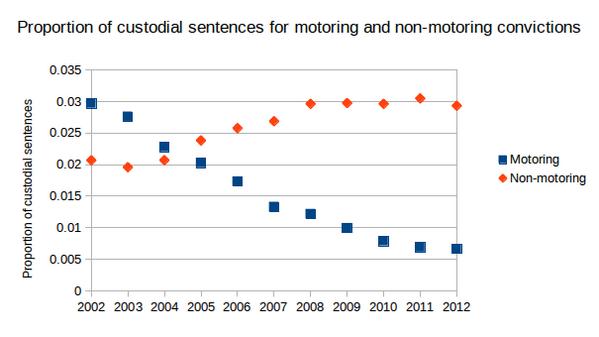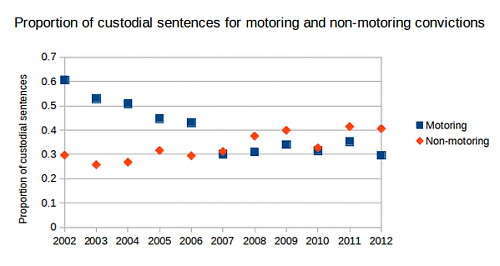- News
- Reviews
- Bikes
- Components
- Bar tape & grips
- Bottom brackets
- Brake & gear cables
- Brake & STI levers
- Brake pads & spares
- Brakes
- Cassettes & freewheels
- Chains
- Chainsets & chainrings
- Derailleurs - front
- Derailleurs - rear
- Forks
- Gear levers & shifters
- Groupsets
- Handlebars & extensions
- Headsets
- Hubs
- Inner tubes
- Pedals
- Quick releases & skewers
- Saddles
- Seatposts
- Stems
- Wheels
- Tyres
- Tubeless valves
- Accessories
- Accessories - misc
- Computer mounts
- Bags
- Bar ends
- Bike bags & cases
- Bottle cages
- Bottles
- Cameras
- Car racks
- Child seats
- Computers
- Glasses
- GPS units
- Helmets
- Lights - front
- Lights - rear
- Lights - sets
- Locks
- Mirrors
- Mudguards
- Racks
- Pumps & CO2 inflators
- Puncture kits
- Reflectives
- Smart watches
- Stands and racks
- Trailers
- Clothing
- Health, fitness and nutrition
- Tools and workshop
- Miscellaneous
- Buyers Guides
- Features
- Forum
- Recommends
- Podcast
 Motoring vs non motoring sentences © Dr Ian Walker.png
Motoring vs non motoring sentences © Dr Ian Walker.pngAre courts getting more lenient towards driving offences as they get harder on everything else?
The criminal justice system in England and Wales appears to have become more lenient towards motorists over the past decade, while simultaneously handing down harsher sentences for other crimes, initial research by a statistics and traffic psychology expert has found.
Dr Ian Walker, a senior lecturer at the University of Bath, has plotted figures published in the Ministry of Justice’s latest statistics bulletin to show that both in the cases of more serious crimes (as tried in the Crown Court) and magistrate’s court cases, motoring offences have attracted lower sentences over the years, directly opposite to other offences.
In fact more and more crimes are being punished with jail, with the exception of motoring crimes. This graph of more serious offences follows the same pattern:

With the caveat that he was keen to do more research into the figures, Dr Walker told road.cc: “It does look as though over the past decade, the legal system (whether the police, CPS and/or courts) have grown more likely to send the people they deal with to prison unless it's a motoring offence, in which case they seem to have grown somewhat less likely to do this.
“The thing we probably need to consider now is what class of offender poses the most risk to society and is most likely to offend again. My gut instinct is that motorists going through the courts might be less likely to mend their ways as a result than those accused of some other offences, but I'd want to see data on that.”
Road safety charities have long campaigned for heavier sentencing in motoring crimes, believing that they attract low sentences that do not act as a deterrent.
Last month the government confirmed it has ordered a review of sentencing in traffic cases where a cyclist or pedestrian is the victim - on the same day a driver who was distracted by his sat nav and killed a cyclist was given a community sentence.
Representatives of British Cycling, CTC and RoadPeace met last year with justice minister Helen Grant to call for thorough investigation and tougher sentencing in cases where a vulnerable road user is the victim.
They also urged that improvements be made to the support provided to the families they leave behind. Also at that meeting was the brother of British Cycling employee, Rob Jefferies, killed on a training ride in Dorset in 2011 by a 17-year-old driver who had passed his test six months earlier and who already had a speeding conviction. He received a non-custodial sentence.
In one of the few potentially positive pieces of news for cycling to emerge from the government’s response to the Get Britain Cycling report published by the All Party Parliamentary Cycling Group, it was confirmed that a review of sentencing in cases involving cyclists and pedestrians will be initiated in the new year.
The review of current sentencing guidelines, which will be accompanied by a consultation, will be carried out by the Sentencing Council, which is an independent non- departmental public body of the Ministry of Justice, and will cover the offences of causing death by careless driving and causing death or serious injury by dangerous driving. Proposals will be subject to a formal consultation.
Latest Comments
- Paul J 9 min 28 sec ago
Ah, good observeration! Wide bars presumably also make sense for bike polo? So... someone into bike polo (part of fixed-gear culture)?
- llm 20 min 34 sec ago
How awful for the owners, this will have an ongoing cost while they restock, devastating for a small business. I think I would have some saved...
- Newhey cyclist 29 min 7 sec ago
For a few years now, I have been reporting cycling incidents from my commute to Operation Snap (Greater Manchester Police). Most are for close...
- llm 32 min 54 sec ago
Could not agree more with James. I live in an area with lots of off road cycle paths but theres a lack road cycle lanes for sure and with more and...
- chrisonabike 59 min 58 sec ago
Various groups are trying. I've no involvement with them but e.g. there's Stolen Ride.
- Secret_squirrel 1 hour 5 min ago
Not really relevant though is it? The 2 close passes were meh at best. The truck wasnt a close pass but a failure to give way.
- PRSboy 1 hour 17 min ago
I imagine he could do fine on a Raleigh Chopper
- wtjs 1 hour 28 min ago
Agreed- or, in simpler terms, the 'campaigners' are tossers who should be ignored or, which would lead to rather less faffing about, fobbed off...
- chrisonabike 1 hour 34 min ago
Being pedantic - how far do you want to go back? Far enough and the answer was "all of them, and all the ones done in cars as well ... only people...
- Disgusted of Tunbridge Wells 2 hours 29 min ago
Not sure if I missed it but I didn't see anything about aero gains, weight savings and they didn't look that "cool" either???...
Add new comment
8 comments
kie7077, whilst i appreciate that you mentioned the facts about crime etc its not as simple as this.
At times we are run ragged and at other times it's quiet so you cant say we can cut numbers it would leave some shifts / areas dangerously low, for instance i have just finished nights and for the area i work, which is 82 sq kms and a population of 200k, we had 20 officers on duty.
Drugs is not the be all and end all of crime, most crime that we deal with is alcohol induced and very few is drug related.
Legalising drugs is a hot potato that no one will address in case it goes wrong big style. Also cannabis is just as addictive and harmful in the long term as some harder drugs and it probably accounts for over 75% of all drug related crime in the area i work so selling it over the counter is a big no no.
kie7077 -
There were 135,838 police officers in September 2011 - 6,012 (4.2%) fewer than the 141,850 of a year earlier.
There were 129,584 full-time police officers in the 43 police forces of England and Wales as at 31 March 2013. This is a decrease of 3.4% or 4,516 officers compared to a year earlier.
So since 2010 there are 12,266 less Police officers covering the streets.
Or we could end the asinine criminalisation of drugs, this would put a huge dent in the numbers of crimes related to drugs like buglary, muggings, shop-lifting etc. A solution could be along the lines of prescriptions for hard and highly addictive drugs whilst softer drugs like cannabis and magic mushrooms could be sold like alcohol.
We have had huge increases in police - the numbers have doubled since the fifties:
http://news.bbc.co.uk/2/hi/uk_news/politics/election_2010/parties_and_is...
Since crime has been dropping, shouldn't the numbers of police drop too?
Police aren't free, sort drug law out, free up police to do other things, and reduce the numbers, if people knew the average tax payer shells out around £400 a year each for police they might think twice about asking for more whilst crime has been dropping substantially.
Can you imagine strolling down the street with a metal bar whilst swinging it around randomly before catching someone on the side of the head and killing them? Put that to an MP and state a just punishment and deterrent to others is community service and they'd (hopefully but who knows anymore) laugh at you.
Do the same with a car though and somehow it's ok...as it was an accident. Government should be made to complete the following statement so we all know where we stand;
It's just fine to kill a cyclist or pedestrian with my car because..
So bored of this 'we take road safety seriously so long as the main aggressor on the roads is unaffected' mentality.
I truly doubt anything will change...fact is as vulnerable road users our lives are wholly dispensable. The car truly is king and all the pleading and common sense just falls on deaf ears.
Brief message, as I'm on my phone. It was proportion of people who were charged with motoring or non-motoring offences who were subsequently sent to prison (as the y-axis label should show). So people who are sent to court over this period are more likely to end up in gaol, unless they're accused of driving offences in which cases they're more likely to remain at liberty
It just dawned on me, one way for the politicians to rig the statistics is to have the police catch less people committing crimes, ie by tying them up in paperwork and by keeping them off the streets where they could actually do some good.
We do not need more police, we have record numbers of police, what we need is more efficient police.
The current way of rigging statistics is to not record it as a crime at all. Go into your local police station and tell them that someone tried to kill you by driving their car/van/lorry/bus at you. Unless you were actually injured or have multiple independent witnesses the desk officer will refuse to log it.
Although this behaviour is encouraged by politicians its the police who are doing the rigging.
The main question is What ? Proportion of what ?
I've worked out that the second table is apparently the more serious Crown Court cases, although the tables are labelled identically.
But there is no indication of units, scale or the base.
It could be either custodial sentences as a proportion of motoring/non-motoring offences or it could be custodial sentences as a proportion of all offences.
And is it number of sentences or length of sentence ? The article also states that non-motoring offences have attracted lower sentences (not fewer).
Depending on which one it is there are different possible explanations - total number of offences (also charges and convictions), average length of sentences would also need to be factored in.
I don't doubt that the trend is correct, but as reported it is meaningless.
Dr Walker frequents these pages doesn't he ? Could he step in and enlighten us with some more accuracy ?